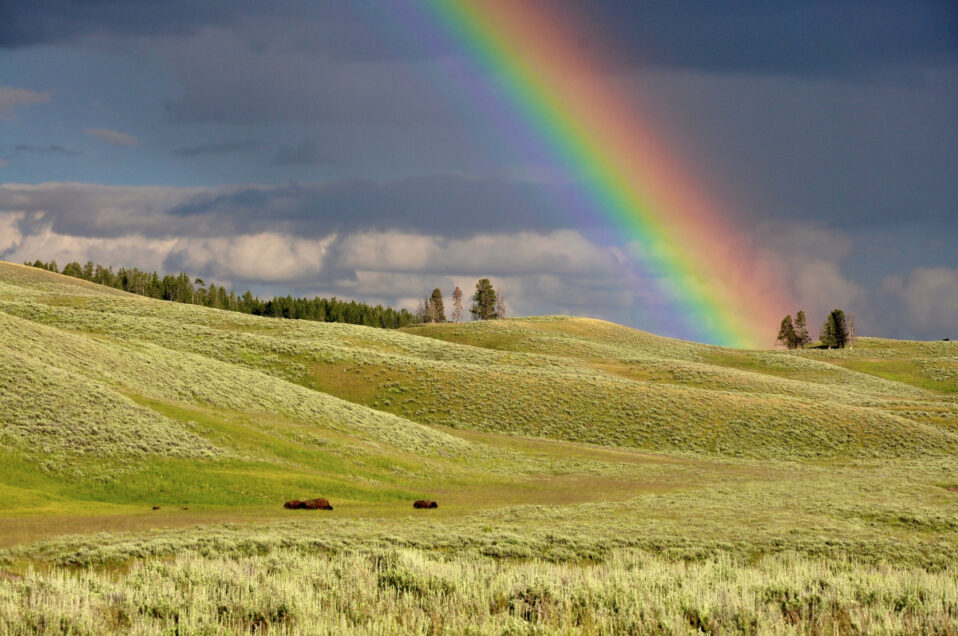On the fourth of October 2023, Pope Francis released an Apostolic Exhortation entitled Laudate Deum. He states clearly in this document that “Eight years have passed since I published Laudato Si’…yet, with the passage of time, I have realized that our responses have not been adequate, while the world in which we live is collapsing and may be nearing the breaking point…”
Francis reiterated the words frequently found in Laudato Si’: “Everything is connected.” He notes in Laudate Deum that climate change will affect every aspect of our lives: healthcare, sources of employment, access to resources, housing, forced migrations, etc. Yet at the dawn of 2024 it appears that we still do not understand the reality of our interconnectedness. Francis notes that “Millions of people are losing their jobs due to different effects of climate change: rising sea levels, droughts, and other phenomena affecting the planet have left may people adrift.” We see the effects all around us but refuse to acknowledge the role humanity is playing in climate change and the systemic change that is necessary.
Francis states clearly that “Despite all attempts to deny, conceal, gloss over or relativize the issue, the signs of climate change are here and increasingly evident. No one can ignore the fact that in recent years we have witnessed extreme weather phenomena, frequent periods of unusual heat, drought and other cries of protest on the part of the earth that are only a few palpable expressions of a silent disease that affects everyone.”
He points out that “It is no longer possible to doubt the human – “anthropic” – origin of climate change…The concentration of greenhouse gases in the atmosphere, which causes global warming, was stable until the nineteenth century, below 300 parts per million in volume. But in the middle of that century, in conjunction with industrial development, emissions began to increase. In the past fifty years, this increase has accelerated significantly, as the Mauna Loa observatory, which has taken daily measurements of carbon dioxide since 1958, has confirmed. While I was writing Laudato Si’, they hit a historic high – 400 parts per million – until arriving at 423 parts per million in June 2023. More than 42% of total net emissions since the year 1850 were produced after 1990.”
Given the above information, it is clearer than ever that systemic change is needed. Author Larry Hutchins tells us that “All the important problems we face are systemic problems: the survival of the planet’s ecology, world peace, the elimination of hunger and disease, the education of youth, and social justice…Over the past several decades the systemic nature of these complex problems has gradually entered the public’s consciousness. Complex problems are systemic; systemic problems are everywhere systemic problems are messy problems.”
Francis recognizes this complexity and writes “Our world has become so multipolar and at the same time so complex that a different framework for effective cooperation is required. It is not enough to think only of balances of power but also of the need to provide a response to new problems and to react with global mechanisms to the environmental, public health, cultural and social challenges, especially in order to consolidate respect for the most elementary human rights, social rights and the protection of our common home. It is a matter of establishing global and effective rules that can permit “providing for” this global safeguarding.”
Although Francis was unable to attend the UN Climate Summit (COP 28) in Dubai, United Arab Emirates due to illness, Cardinal Secretary of State Pietro Parolin delivered Pope Francis’ speech to delegates. Through Cardinal Paolin, Francis told delegates that “his presence serves to remind them that “the destruction of the environment is an offence against God, a sin that is not only personal but also structural, one that greatly endangers all human beings, especially the most vulnerable in our midst and threatens to unleash a conflict between generations.”
It was hoped that the conference would provide the structure and commitment to truthfully acknowledge the causes of climate change and put forth specific recommendations which countries would agree to act upon. Although it did not attain the objectives many people in countries throughout the world wanted, there were some important decisions made.
Some of the Key Outcomes of COP 28:
- The final document calls for the world to “transition away from fossil fuels in energy systems, in a just, orderly and equitable manner, accelerating action in this critical decade, so as to achieve net zero by 2050.” This signifies both a rapid near-term shift away from fossil fuels and a long-term direction of travel to a zero-carbon future. This is the first time such an agreement has been reached in 28 years of international climate negotiations.
- The Loss and Damage Fund was fully operationalized on the first day of the Dubai summit. The fund is designed to help climate-vulnerable countries deal with climate impacts that go beyond what people can adapt to.
- Outside of the negotiations, countries and others made major announcements on food, a milestone since the issue has historically been left out of the COP. One hundred and fifty-nine nations, covering nearly 80% of the world’s land, signed the COP28 United Arab Emirates (UAE) Declaration on Sustainable Agriculture, Resilient Food Systems, and Climate Action, committing to integrate food and food systems into their s by 2025.
- The final COP28 agreement reflects a growing understanding of cities as critical climate battlegrounds and partners for action—a fitting recognition since 70% of carbon dioxide emissions come from urban areas.
- COP28 saw an encouraging slate of actions to address methane pollution, a greenhouse gas 20 times more powerful than carbon dioxide. Governments, companies, and philanthropies announced over $1 billion in new grants, which more than triples the funding for projects focused on cutting methane in the oil and gas, waste and agriculture sectors, with the goal of mobilizing billions more.
Attention turns now to the next essential tasks: turning the goals expressed at COP28 into national action and ensuring the finance is there to implement them. Importantly, these commitments must be seen as the floor — not the ceiling — in the fight against climate change. Climate-vulnerable communities and countries cannot afford to be shortchanged. It is up to countries to translate the UAE Consensus into their next round of Nationally Determined Contributions (NDCs) and transformative domestic legislation and policies, including ramping up renewables and fossil-free transport and tamping down fossil fuels at every turn. Global agreements can send the right signals, but the world’s fate will ultimately be determined by whether countries play their part in addressing the climate crisis.
Pope Francis concludes Laudate Deum with the following: “If we consider that emissions per individual in the United States are about two times greater than those of individuals living in China, and about seven times greater than the average of the poorest countries, we can state that a broad change in the irresponsible lifestyle connected with the Western model would have a significant long-term impact.” These words are a direct challenge to us to evaluate our own lifestyles and ask what more we can do to care for Earth, our common home.
Pope Francis continually reminds us that systemic change is needed in multiple systems: our church, government, education, etc. so it is a call for us to hold leaders and each other accountable in all of the institutions of which we are a part. One concrete action each of us can take immediately it to take the Laudato Deum pledge which invites us to make personal changes in our own lifestyles, but also to hold the leaders of our institutions accountable for keeping the commitments they made at COP 28. This document can be found at https://catholicclimatecovenant.org/my-laudate-deum-action-pledge/ Pray with the actions suggested and make your personal commitment. Join with others to make a difference.


